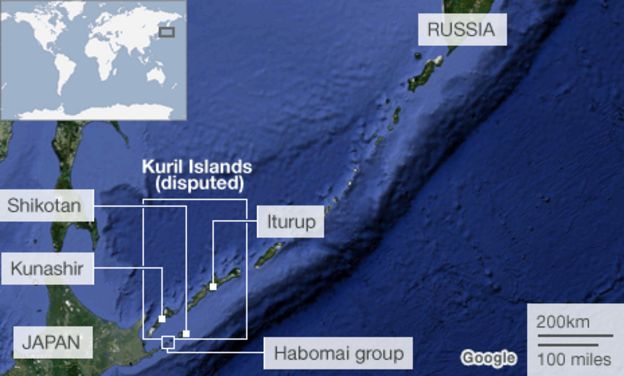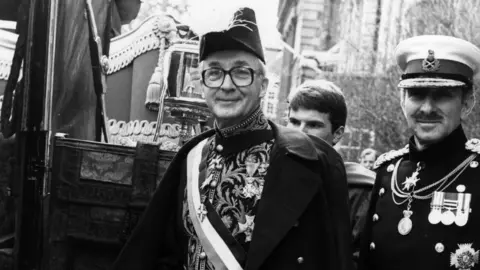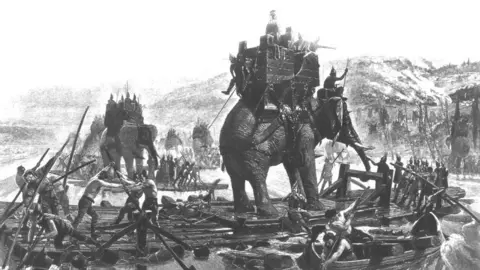Korea summit: When war ends but peace is out of reach
 Fox Photos
Fox PhotosMore than six decades after the guns fell silent at the end of three years of bloody combat on the Korean peninsula, the two Koreas remain in a technical state of war.
Hostilities were ended with an armistice and no peace treaty has ever been signed - although with the recent declaration of a "new era" in relations, that may now be in prospect.
In fact, there are many examples - both historical and contemporary - where physical conflict has stopped but achieving a legal state of peace has proved elusive.
Some might surprise you.
Russia and Japan
The Soviet government declared war on Japan just days before Japan surrendered at the end of World War Two, in August 1945. It went on to annex the Kuril Islands that lie between Japan and Kamchatka in eastern Russia. Japan calls these islands the Northern Territories.

Those islands are still the obstacle to agreeing a peace treaty. Russia says its sovereignty over the islands was recognised in post-war agreements, but Japan refuses to renounce its claim to them.
The Soviet Union did not sign the 1951 peace treaty between Japan and the Allied Powers. It did sign a joint declaration ending the state of war and restoring diplomatic relations with Japan in 1956, but the territorial issues have stymied the conclusion of a formal peace treaty.
Allies of World War Two and Germany
Germany surrendered to its Allied enemies in May 1945. But because it went on to be partitioned between the victorious powers, there was no single German state that they accepted as being the sole representative of the former Reich.
With the onset of Cold War hostilities, the war technically did not finish until German reunification in 1990.
The state of war is said to have provided the US with the legal basis for stationing troops in Western Germany.
Montenegro and Japan
It took Montenegro nearly a century to make peace with Japan, after it supported Russia in the 1904-05 Russo-Japanese war, which ended in a surprise victory for Japan.
When Russia and Japan signed a peace treaty, Montenegro was forgotten and following the tumult of World War One, Montenegro became part of the Kingdom of Serbs, Croats and Slovenes and later Yugoslavia.
It was only in 2006, when Montenegro declared itself independent once again, that it finally agreed the peace deal enabling it to establish diplomatic relations with Japan.
The Netherlands and the Isles of Scilly (UK)
While some states of war endure for decades, others have lasted centuries - although, in this case, the state of war was entirely forgotten about.
The war has its roots in 1651 at the end of the English Civil War, when the Dutch fleet sided with the Parliamentarians and demanded reparation for the damage to their fleet by Royalist artillery, based in Scilly.
 Central Press
Central PressNo reparations were made so, as most of England was in Parliamentarian hands, the Dutch specifically declared war on the Scilly Isles, accounts suggest. When the Parliamentarians took the islands, the Dutch left and no peace treaty was ever signed.
Three hundred and thirty-five years later in 1986, this fact was uncovered by Scilly islander and keen historian Roy Duncan, resulting in a visit to the islands by the Dutch ambassador to sign a peace treaty.
How harrowing it must have been for the Scilly islanders, the ambassador Jonkheer Huydecoper joked, "to know we could have attacked at any moment".
Ancient Rome and Carthage
Going further back, in ancient times Rome and Carthage never agreed to peace after the Romans seized and destroyed Carthage at the end of the Punic wars in 146 BC.
 Hulton Archive
Hulton ArchiveMore than 2,100 years later in 1985, the mayors of modern Rome and Carthage municipality - a modern-day suburb of Tunis - signed a peace treaty and an accompanying pact of friendship.
